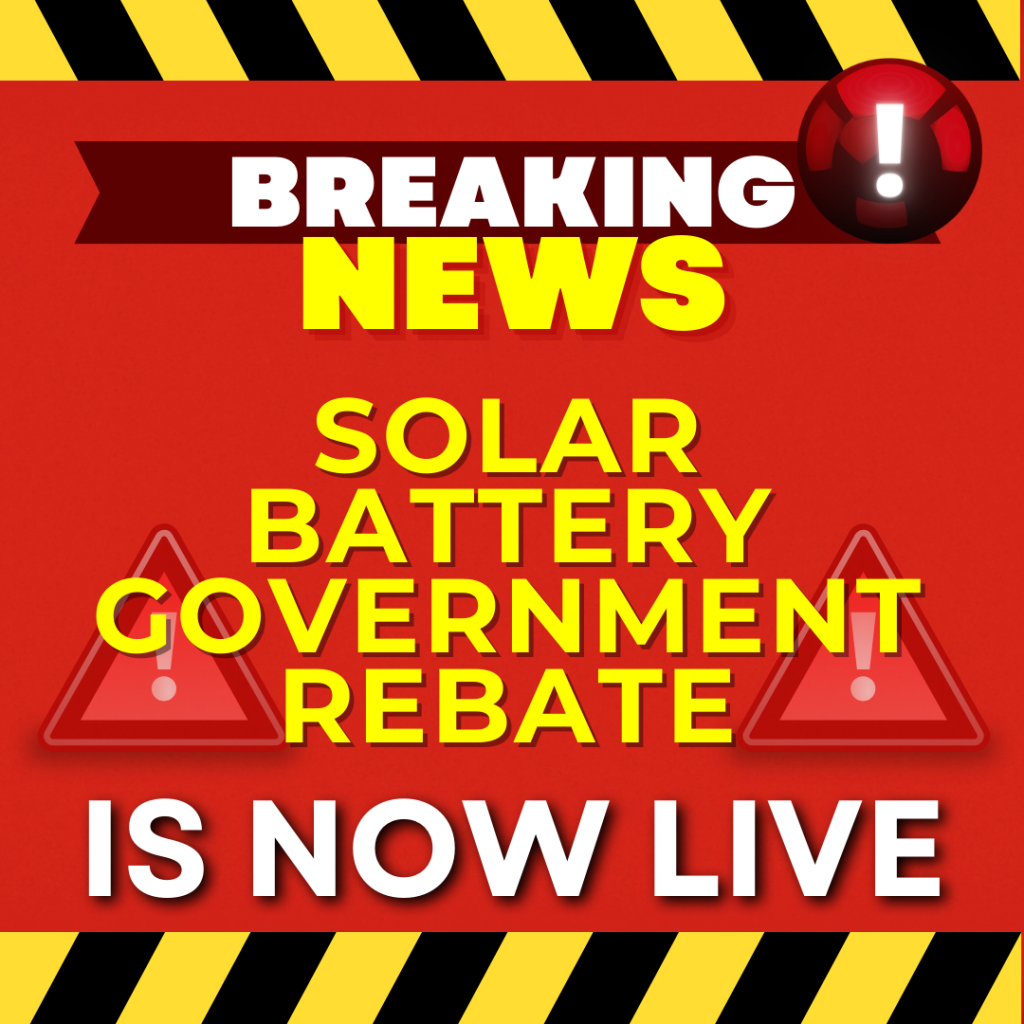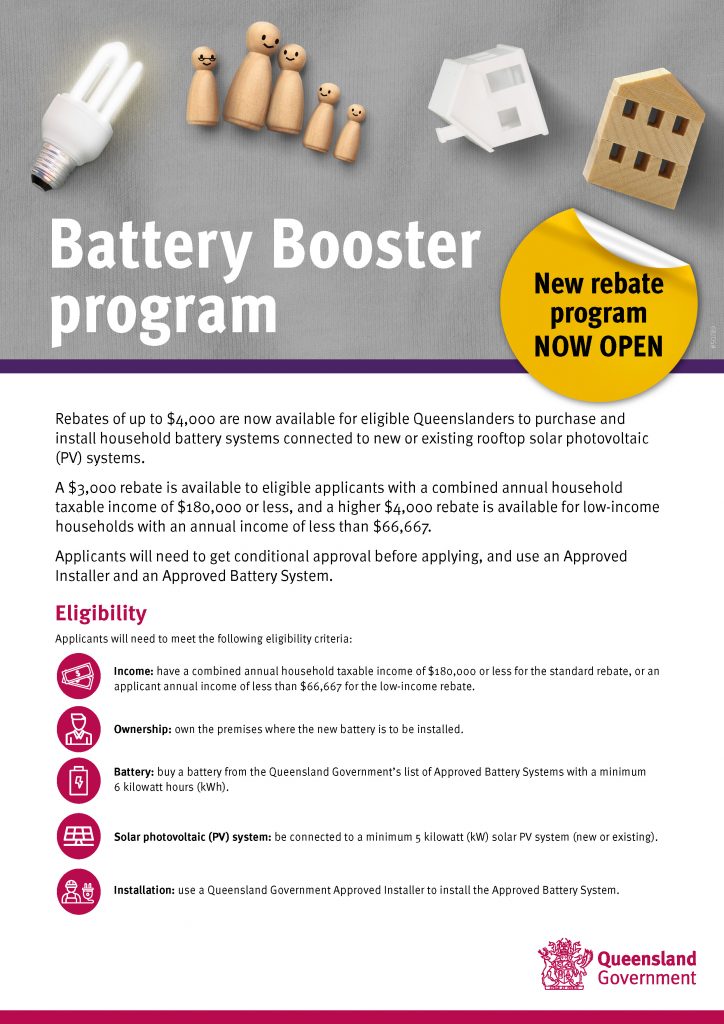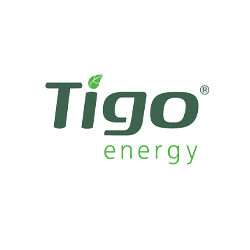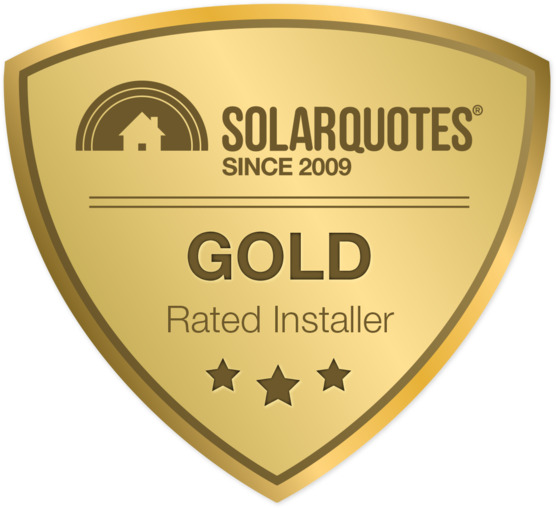QLD BATTERY REBATE IS HERE!!
QLD BATTERY REBATE IS HERE!!
DON’T MISS OUT, CALL US NOW!!
A QLD Government Battery Rebate is now LIVE.
There are limited numbers of rebates available, and we expect that they will be gone quickly. Don’t delay, call us today so you don’t miss out.
Here is what we know so far:
The Queensland Government’s Battery Booster program will provide rebates of up to $4,000 to eligible Queenslanders to buy and install household solar battery systems to use with new or existing rooftop solar systems.
The program will be available to Queensland households NOW!!
The program is an initiative under the Queensland Energy and Jobs Plan, aimed at lowering energy bills and helping Queenslanders with cost of living pressures.
There will be minimum requirements for households to be eligible for the program.
Summary of minimum requirements:
- Maximum income: Applicants must have a combined annual household taxable income of $180,000 or less.
- Battery purchase date: Home battery systems will only be eligible if purchased when the program is open and after the applicant has received conditional approval as part of the application process. Any batteries purchased before the program opening date and before receiving conditional approval will not be eligible under the program.
- Minimum battery system size: A minimum 6 kilowatt hour (kWh) battery needs to be purchased from an approved battery systems list that will be published on this web page when the program opens.
- Approved battery system: Only battery systems on the list are eligible for the rebate. We will publish a list of approved battery systems on this web page when the program opens.
- Minimum solar PV system size: Households must have at least a 5kW solar PV system (new or existing).
- Approved Installer: The battery system must be installed by an Approved Installer. SolarWide has applied to be a registered installer within the scheme.
If your planned battery system does not meet the minimum requirements, it will not be eligible for a rebate.
Department of Energy and Climate - Battery Booster Program
Battery Booster Customer Factsheet
Battery Booster Program Website Link
Here the link to the government battery booster page:

FAQ
Which battery is right for me?
How much are solar batteries in Sunshine Coast?
Solarwide can help.
How long will the solar batteries last?
Most solar batteries on the market today have a lifespan of five to fifteen years. While it is a long period of time, you will most likely need to substitute them within your solar system’s 25 to 30 year lifespan. In saying this, there are numerous external factors that also determine the lifespan of your battery. You’ve probably noticed that your laptop or smartphone battery no longer lasts as long between charges after a few years. A fully charged battery may have lasted 12 hours when it was new. It now lasts three minutes. This is inconvenient, but it is unavoidable when it comes to batteries. The more frequently you charge and discharge your battery, the shorter the charge lasts. Your batteries will no longer be able to store and discharge enough energy to make their use worthwhile after a certain number of cycles.
As a result, the number of years a battery will last varies greatly. It is determined not by the number of years they have been installed, but by how frequently each solar owner uses them.
Another variable that affects battery life is the surrounding environment. Batteries do not do well in either extremely hot or extremely cold environments. If you can store the batteries in a garage or basement, or a part of the building that is out of the way and somewhat temperature-controlled, your storage system will last longer than if the batteries are exposed to the elements. Warmer temperatures cause the chemical reaction in the batteries to occur more quickly, reducing the battery’s lifespan by increasing wear and tear on the battery. In extreme cold, electrons slow down and chemicals do not last as long as they should, causing the battery to drain much faster.
Solar batteries, with a life expectancy of five to fifteen years, will almost certainly need to be replaced at least once during the 25- or 30-year lifespan of your solar system. However, by using your battery properly, choosing quality products with good manufacturer guarantees, and trying to install the battery in an ideal weather location, you can rest assured that your battery will last a lot longer.
What are the benefits of battery storage?
The sun, wind, and tidal power can all be used to generate renewable energy. At its core, it refers to the use of numerous resources that do not deplete and are constantly replenished. In saying this, solar power can be produced and stored in solar batteries. However, many wonder if solar batteries are really beneficial. Some of the main benefits of solar batteries will now be explored.
- It allows for more efficient use of solar power. The use of batteries to store this power is required to ensure that it can be used whenever needed. With batteries, your excess power is stored in the battery system, allowing you to draw from the batteries rather than the grid on overcast days when your solar system does not produce as much power as you require.
- It allows for added protection. This means the use of batteries for energy storage decouples renewable energy production and use from low consumption periods. These systems enable you to overcome obstacles caused by the intermittent production of this energy, which is an unavoidable issue.
- It allows solar system owners to be less dependent on the grid. Solar battery systems allow you to construct a home that is far more resilient and less reliant on the grid. For example, if you live in a rural area where the grid is notoriously unstable, a battery storage system provides peace of mind by allowing you to power key aspects of your home for extended periods of time.
- It allows you to reduce your carbon footprint. Installing solar batteries allows you to reduce the carbon footprint of your home and move closer to self-sufficiency. These systems are perfect for anyone looking to reduce greenhouse gas emissions and pollution. Solar energy systems emit far less pollution than traditional fossil fuels, and by utilising battery storage systems, you can ensure that any energy produced is not wasted.
With all these major benefits, it is highly recommended that solar storage batteries be a consideration on a new or existing solar system.
Is battery storage safe?
In general, lead-acid batteries are safe and easily recyclable. It should be noted that lead-acid batteries emit an explosive mixture of hydrogen and oxygen gases during the final stage of charging, so adequate ventilation is critical.
While it may sound unsettling, it is simply a matter of avoiding a potentially hazardous situation by using proper care and maintenance when working with lead-acid energy storage. The danger level is very similar to that associated with gasoline-powered cars and household gas.
Lead-acid batteries are generally safe and easily recyclable. It should be noted that during the final stage of charging, lead-acid batteries emit an explosive mixture of hydrogen and oxygen gases, so adequate ventilation is essential.
While this may sound unsettling, it is simply a matter of avoiding a potentially hazardous situation when working with lead-acid energy storage by using proper care and maintenance. The danger level is comparable to that of gasoline-powered automobiles and household gas.
Flow batteries are much more eco-friendly and have a very low fire risk due to the chemistry of the solutions they contain, such as zinc-bromide electrolyte, which is essentially a fire retardant. They are also very simple to recycle.
Saltwater batteries are non-flammable, non-explosive, and non-toxic. Their chemistry is inherently safe and does not have the potential for thermal runaway. This type of energy storage is also completely safe to touch and environmentally friendly to recycle.
Therefore, don’t skimp on the quality of your solar energy storage system or the cost of installation. If the job is done correctly, your home solar battery storage system will operate safely and for a long time.
How does a battery storage system work?
When you install solar panels, you will typically instal a ‘grid-tied,’ net-metered solar panel system. This means that if your solar panels produce more electricity than you require, you can export the excess to the grid, and vice versa, if you consume more electricity than your panels produce, you can draw directly from the grid.
Net metering works by allowing you to run power back through your electricity meter when putting extra energy onto the grid and forwards when pulling from the grid, with your utility billing you for the electricity you use.
Unfortunately, energy retailers do not buy it from you at the same rate they sell for, but it still gives you some great savings and is the extra cream on top of the self-consumption savings you have achieved.
Instead of exporting any excess solar production to the grid, you can use it to charge your energy storage system first with a solar plus storage system. When you need electricity after the sun has set, you can draw from your solar battery rather than the power grid.















